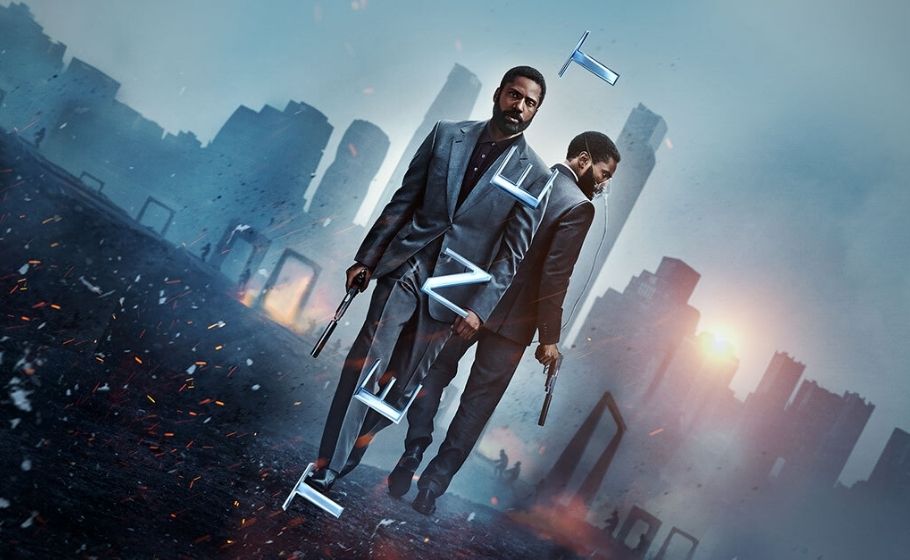
In 'Tenet', Nolan is a victim of his own accomplishments

In his latest, ‘Tenet’, Christopher Nolan has been keen on setting the mood of the film to the audience right from the beginning, and ensuring its ‘grandeur’. The budget that was sought was played to the audience with his own type of screenplay, writing, and music.
Nolan follows a very crisp style of story telling, right from the beginning in Kiev till the last shot. No time has been spared to introduce any character, nevertheless the number of characters involved itself are very few. The protagonist played by John David Washington is an agent hired by an organisation to do a top secret work that involves a new technology that can rewrite the fate of human civilisation in all three aspects of time – past, present and future.
The two-and-half-hour film is the lengthiest Nolan has ever made. And the least emotional by him as well. If the film is seen without the thought that it is a Nolan film, then it would bring awe, surprise and admiration to us (the audience). But going into the theatres expecting what Nolan would have up his sleeves is the problem, though not the only one.
There are also mistakes–perhaps for the first time by Nolan in any of his flicks.
The Concept
The introduction of key concepts and characters, including those of the protagonist, Neil (played by Robert Pattison), or even the villain, were short, as Nolan might have expected the audience to grasp it quickly. But this resulted in a concept that is hollow, lacking depth. Refer to how the concept of ‘Tenet’ was concluded by the scientist, “Don’t try to understand it, feel it.”
The problem arises when the audience doesn’t know what to feel due to their lack of complete understanding of the concept. What would you feel about something that you don’t understand properly? So it looks huge from the outside, but hollow from the inside.
Also read: Netflix donates ₹7.5 crore for daily wage entertainment workers in India
The dispute between Andrei’s wife Kat (played by Elizabeth Debicki) is a very personal one, but unnecessarily intruded by the hero. The audience is expected to treat it as if ‘Tenet’ is something really dangerous, but there were no scenes or content to support that notion.
The Emotions
‘Tenet’ is high concept and very low emotions. The hero wants to save the world, no doubt! But for whom? There is no emotional interlock like how we saw in ‘Inception’ , ‘Dark Knight’ or ‘Interstellar’. In ‘Inception’, Cobb (Leonardo Di Caprio) would want to go back to his family so he would listen to the dealer’s words to leave what they were doing once and for all. In ‘Interstellar’, Cooper (Matthew McConaughey) would fly to meet Dr. Brand due to his feeling towards her. But here, both the hero or Neil would come together “to do stuff”, period!
The emotional connect is kept even more discreet by not naming the hero! There is no name for John David Washington. JD Washington portrays the role with very less emotions and does not show surprises. He acts as if he knows everything and makes conversations to check if what others are saying is correct. He doesn’t act surprised or shocked or even sad. But uses the right jargons as if he knows it before (like when speaking to the doctor!)
Also read: ‘Into The Wild with Bear Grylls’ offered real-life entertainment: Rajinikanth
Why do we need to know where the bullets come from? Is it worth a huge aeroplane explosion and risking life? We‘Into The Wild with Bear Grylls’ offered real-life entertainment: Rajinikanth all agree he risked his life for this ‘dream job’, but at what cost is the hero continuing this job? nobody knows. The tension created by the screenplay are all not character driven emotions, but just viewers’ curiosity.
Setting up the mood
‘Inception’ introduces every new concept with a shocking sequence with action. Just recollect how Tom Hardy gets introduced in a chase in Africa, how Elliot Page gets recruited with a short interview at her college and how Dileep Rao and Joseph Gordon Levit’s characters are included in the plot. To the contrary, a drunk Robert Pattinson introduces himself as if it is another day at office.
“Don’t try to understand it, feel it”
This is how a doctor explains what ‘Tenet’ is to the hero. We wish Nolan had known this does not work if we don’t understand what it is that we need to feel.
It is like nobody knows enough about the concept to clearly establish why it is so important. But still everybody knows enough about the concept to make it seem like it is not really that important or emotionally compelling. This movie carries the mentality of feeling versus understanding.
To conclude, Nolan seems to be a victim of his own accomplishments. If ‘Tenet’ was made by another director, the world would have reacted differently. The camera angles, cinematography, lighting, background are all top notch. The background score in particular was terrific, though it was not Hans Zimmer who was busy with Denis Villeneuve’s ‘Dune’. The visual effects and real time action scenes are a treat to watch, especially where a building comes to shape from an explosion and explodes the next second was too much to take.
There is a little teaser by Neil in the film of a possible sequel. We still wonder about the usages of names like ‘Sator’ which reads backwards ‘Rotas’ (the logistics facility where art pieces are kept) and the place ‘Arepo’ is mentioned. Meanwhile, the internet has started its conspiracy theories aka easter eggs, as we still dig for Nolan’s brilliance.


